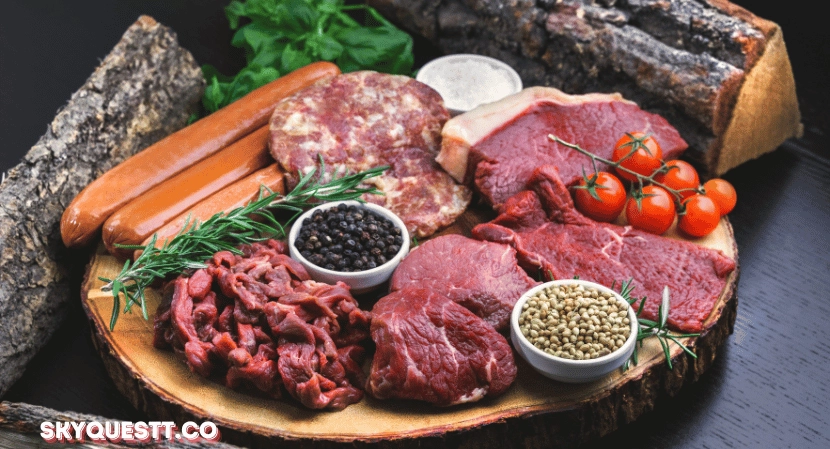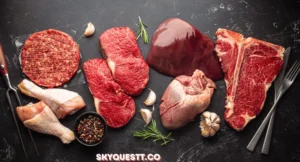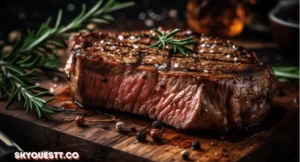
India, while known globally for its large vegetarian population, also has a significant demand for meat products, driven by cultural diversity and a growing non-vegetarian consumer base. The meat industry in India is both vast and complex, catering to domestic consumption as well as a growing export market. With evolving consumer preferences, technological advancements, and increased awareness around food safety, Indian meat companies are shaping a new narrative in the industry. This article explores the landscape of meat companies in India, highlighting the key players, market trends, and challenges they face.
A Diverse Meat Market
India’s meat industry includes various types of meat, with poultry, buffalo (commonly referred to as beef in India), mutton (goat meat), and pork being the primary sources. The country’s geographical and cultural diversity creates different consumption patterns, with certain regions consuming specific types of meat. For example, chicken and goat meat are popular across the nation, while pork and beef are consumed in specific regions such as the Northeast and Kerala.
The Indian meat industry operates at both the industrial scale and through small-scale local butchers and vendors. This sector is categorized into two primary areas:
- Formal Industry: Comprising large-scale slaughterhouses, processing units, and packaged meat companies.
- Informal Sector: Consisting of traditional butchers, roadside vendors, and local meat shops, which make up a large portion of the market.
Key Meat Companies in India
In the past decade, several meat companies have emerged to capitalize on the growing demand for hygienic, processed, and packaged meat. Some of the prominent meat companies in India are:
- Venky’s (Venkateshwara Hatcheries Group):
Venky’s is a major player in the Indian poultry industry. Established in 1971, the company operates across various sectors of the poultry business, including breeding, hatching, and processing. Venky’s offers a range of processed chicken products such as sausages, nuggets, and frozen cuts. It is also known for its significant export market, contributing to India’s poultry meat exports. - Suguna Foods:
Founded in 1984, Suguna Foods has become one of the largest poultry companies in India. The company specializes in producing and processing broiler chickens and offers a variety of products under its brand, including frozen chicken, ready-to-cook meats, and marinated products. Suguna is a key supplier for major retail chains and has a presence in both domestic and international markets. - Godrej Tyson Foods:
A joint venture between Godrej Agrovet and Tyson Foods, Godrej Tyson is a leading name in the Indian meat industry. The company produces fresh and frozen poultry products under the brands “Real Good Chicken” and “Yummiez.” Godrej Tyson Foods is known for its commitment to food safety and hygiene, offering quality chicken products across various Indian states. - Al Kabeer:
Al Kabeer is a major meat exporter and processor in India, focusing primarily on halal meat. Established in 1978, the company produces frozen meat products, including beef, lamb, chicken, and processed foods such as kebabs and burger patties. Al Kabeer has a strong presence in the Middle East, where it exports a significant portion of its products. - Allanasons:
Allanasons is one of India’s largest exporters of processed meat, particularly buffalo meat. The company is known for its state-of-the-art slaughterhouses and processing facilities, adhering to international standards of food safety and hygiene. Allanasons caters to markets in over 70 countries, including the Middle East, Southeast Asia, and Africa. - Zappfresh:
Zappfresh is an online platform that offers fresh, hygienically processed meat products to Indian consumers. The company specializes in delivering a wide range of products, including chicken, mutton, and seafood. By focusing on providing traceable and high-quality meat, Zappfresh has built a strong reputation among health-conscious consumers in metropolitan areas.
Market Trends in the Indian Meat Industry
Several key trends are shaping the Indian meat industry today, influencing both large-scale meat processors and smaller companies:
- Rise in Packaged Meat Consumption:
With increasing awareness around food safety, hygiene, and quality, more consumers are shifting towards packaged and processed meat. Urbanization, a growing middle class, and lifestyle changes have contributed to the demand for ready-to-cook and frozen meat products. This trend has benefited companies like Godrej Tyson and Venky’s, which offer a wide range of processed and packaged products. - Growth of Online Meat Delivery Platforms:
The digital revolution has impacted nearly every industry, and the meat sector is no exception. Companies like Licious, Zappfresh, and Freshtohome have leveraged e-commerce platforms to deliver fresh, hygienic meat to consumers’ doorsteps. These platforms cater to the needs of urban consumers who prioritize convenience, quality, and variety. - Export-Oriented Growth:
India is one of the largest exporters of buffalo meat, with companies like Al Kabeer and Allanasons leading the way. The demand for Indian halal meat products is particularly strong in the Middle East, where Indian companies have a well-established presence. The government’s support for increasing meat exports has further boosted the sector, making India a major player in the global meat market. - Focus on Sustainability and Traceability:
Sustainability is becoming a critical focus area for the meat industry, as consumers become more concerned about ethical sourcing and environmental impacts. Companies are increasingly adopting traceability solutions to ensure that their products meet global standards for animal welfare, food safety, and environmental sustainability.
Challenges Faced by Indian Meat Companies
While the Indian meat industry holds immense potential, it also faces several challenges:
- Regulatory Hurdles:
The meat industry in India is subject to strict regulations and compliance standards, especially concerning slaughtering practices, hygiene, and food safety. Navigating these regulations can be complex, especially for smaller players who may lack the infrastructure to meet stringent requirements. - Supply Chain Issues:
Ensuring a cold chain from slaughterhouses to retail outlets is essential for maintaining meat quality. However, India’s infrastructure in some regions may not be equipped to handle the challenges of transporting perishable goods like meat, leading to potential quality degradation. - Religious and Cultural Sensitivities:
Given the significant vegetarian population in India and religious sensitivities surrounding the consumption of beef and pork, companies must be mindful of their product offerings. Some regions strictly prohibit the sale of certain meats, which limits market opportunities.
India’s meat industry is an evolving and dynamic sector, with established players like Venky’s, Suguna Foods, and Godrej Tyson leading the way. The rise of online platforms such as Zappfresh and Licious is reshaping the retail landscape for meat products, while companies like Allanasons and Al Kabeer continue to expand India’s export footprint. Despite challenges, the Indian meat industry presents significant opportunities for growth, driven by changing consumer preferences, technological advancements, and expanding export markets.






